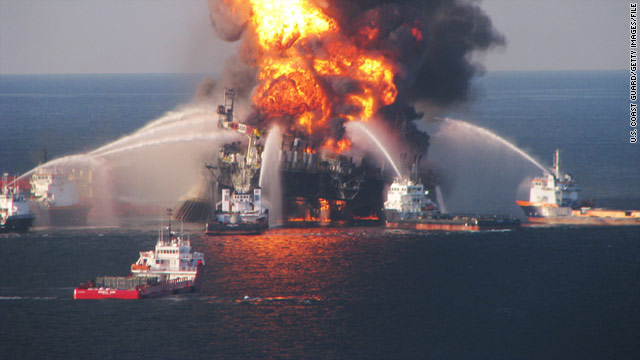Scammer
Banned

-- Interior Department officials announced an extensive restructuring of the agencies that oversee offshore oil drilling Wednesday, pledging "fundamental change" for a system widely criticized after the worst oil spill in U.S. history.
The expected moves split the since-renamed Minerals Management Service into separate agencies, with one responsible for approving offshore leases and another to enforce safety and environmental laws. Michael Bromwich, the head of the current Bureau of Ocean Energy Management, Regulation, and Enforcement, told reporters the reorganization is aimed at beefing up safety after "decades of neglect" and conflicts of interest among regulators.
"This reorganization is much more than just moving boxes around," Bromwich said. "It is about a comprehensive review and a fundamental change in the way that these agencies operate."
The Interior Department said it plans to have its newly created Bureau of Ocean Energy Management and Bureau of Safety and Environmental Enforcement up and running by October 1. A separate agency to collect revenues from leases was spun off from MMS in 2010.
The announcement came eight days after the presidential commission that investigated last April's sinking of the drill rig Deepwater Horizon sharply criticized regulators for their passivity, finding they were outmatched, underfunded and had conflicting responsibilities that prevented them from effective oversight of the offshore oil industry. The sinking killed 11 workers and uncapped an undersea gusher that spewed more than 200 million gallons of crude into the Gulf of Mexico before it was contained in June.
Efforts to reshape the MMS began shortly after the explosion. Before the disaster, internal watchdog reports criticized MMS inspectors for accepting meals and tickets to sporting events from oil companies they monitored in the Gulf and found regulators in the agency's Colorado office received improper gifts, engaged in illegal drug use and had inappropriate sexual relationships with energy industry representatives.
The Interior Department is also setting up a committee of top scientists and engineers to recommend improvements in offshore safety and well containment procedures. Tom Hunter, the former head of Sandia National Laboratories, will lead that committee, the department announced.
"I think what has become abundantly clear through the various investigations, including the report of the Deepwater Horizon Commission, is that industry moved deeper and deeper into our nation's waters," Interior Secretary Ken Salazar said. "And while the technology for oil and gas drilling in those waters developed very quickly, other technologies that should have come along hand-in-hand simply did not."
